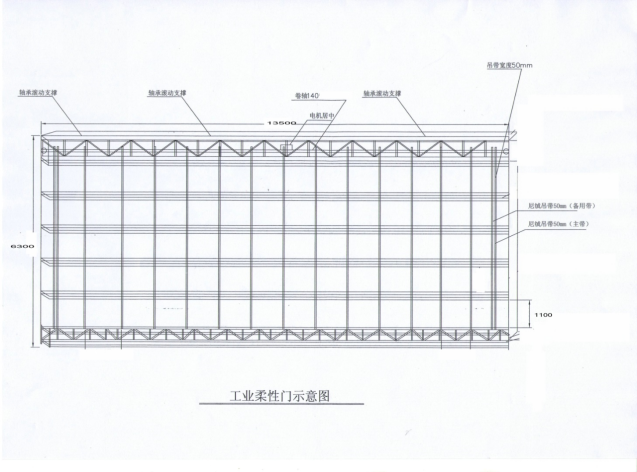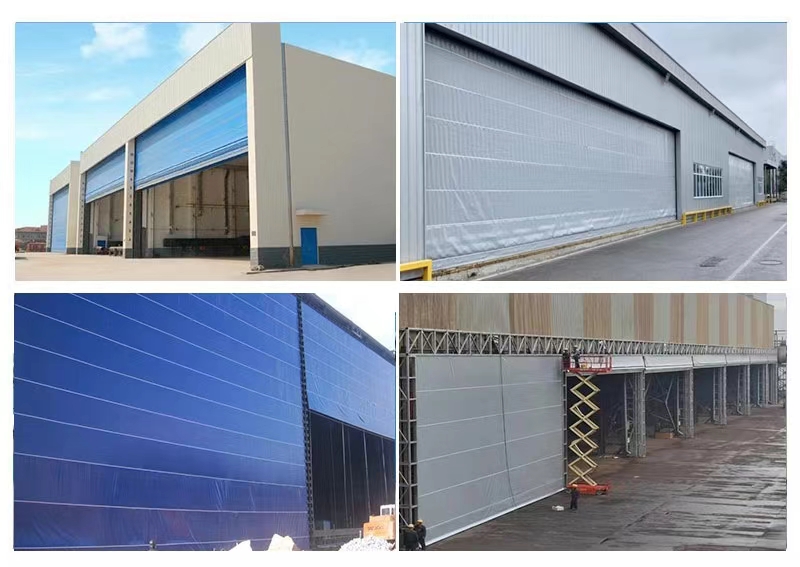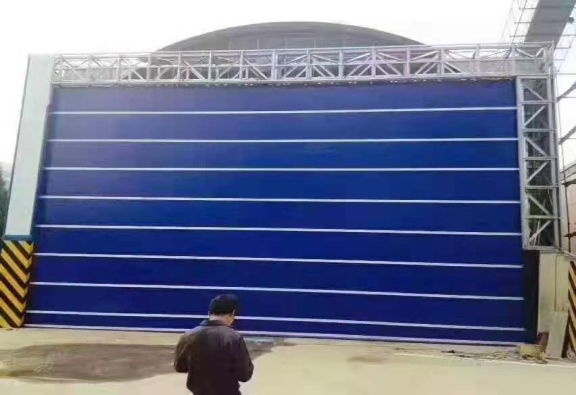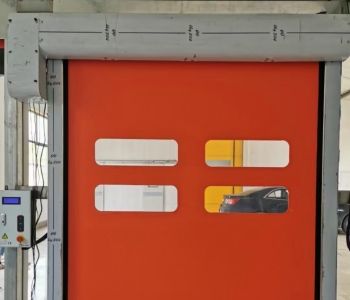Flexible gate structure drawing
Overview of Huajie flexible gates
With its unique structure and rich cultural connotation, the flexible gate has become the highlight of many construction projects, this kind of gate usually uses high-strength, corrosion-resistant materials, combined with advanced manufacturing technology, to ensure the durability of the gate, the material selection of the flexible gate also fully considers environmental factors, reflecting the concept of sustainable development.

Analysis of the structure diagram of Huajie flexible gate
1. Overall structure: The structure diagram of the flexible door mainly includes the door frame, door leaf, drive device and control system, etc., and the door frame is made of high-strength steel to ensure the overall stability of the door; The door leaf is the core part of the flexible door, which is made of special materials and processes with good flexibility and durability.
2. Door leaf structure: The door leaf is composed of a plurality of units, and each unit is flexibly connected through connectors, which makes the door leaf can produce a certain deformation when it is subjected to external force, so as to absorb the impact force and improve the wind pressure resistance of the door.
3. Drive and control system: the driving device of the flexible gate adopts advanced electric or hydraulic technology, which can realize the automatic opening and closing of the gate, and the control system has a variety of functions, such as anti-collision, anti-pinching, remote control, etc., which improves the safety and convenience of the use of the gate.

Design concept and technical characteristics
1. Regional cultural characteristics: The design of the flexible gate is closely combined with local cultural characteristics, such as the use of traditional Mongolian patterns, colors and other elements, so that the gate becomes a carrier of regional culture.
2. Combination of flexibility and rigidity: the flexible door design pays attention to the combination of flexibility and rigidity, the flexible design of the door leaf makes the door deformed when it is subjected to external force, and the rigid design of the door frame ensures the overall stability of the door, which makes the door not only have good wind pressure resistance, but also meet the aesthetic requirements.
3. Environmental protection and sustainability: In the process of material selection, manufacturing process and use, the flexible door fully considers environmental protection factors, such as the use of renewable materials, low-energy manufacturing processes, etc., reflecting the concept of sustainable development.
4. Intelligent control: The flexible gate adopts advanced control system to realize intelligent management, such as automatic induction, remote control operation, anti-collision and anti-pinch functions, which improves the convenience and safety of the gate.
5. Durability and maintenance: The flexible gate is made of high-strength, corrosion-resistant materials, combined with advanced manufacturing technology, to ensure the sturdiness and durability of the gate, simple and convenient daily maintenance, and prolong the service life of the gate.

The design and application of the flexible door structure diagram fully embodies the diversification and personalized trend of modern gate design, and its design concept and technical characteristics, such as regional cultural characteristics, flexible and rigid combination, environmental protection and sustainability, intelligent control, etc., make the flexible door a bright spot in the field of architecture, through the in-depth analysis of the flexible door structure diagram, we can better understand the construction principle and design concept of the flexible gate, and provide a useful reference for future architectural design.
Recommended Products
up to dateGhana Automatic Door Accessories
- High Speed Door Zippers Industrial Door Zippers
- Safety Beam Sensor Use for Automatic Door
- Wireless Hand Sensor Switch For Automatic Door
- Hospital Door Foot Sensor
- Automatic Sliding Door System Wireless Touch Press Switch
- Automatic Sliding Door IP65 Waterprooft Wireless Hand Press Switch
- Automatic Door Microwave Sensor
- Reflective Type Infrared Detector
- Automatic High Speed Door Infrared Radar Sensor CNB-204G
- Aluminum Alloy Wind Section For PVC rapid roller shutter door
- Aluminum Bottom Section For PVC high speed rolling shutter door
- Good Quality Door Hardware Strip Brush for High-speed Door Rail
- High Speed Door Fast Door Servo Motor Permanent Magnet AC-Synchronous Servo Motor with Worm Reductio






